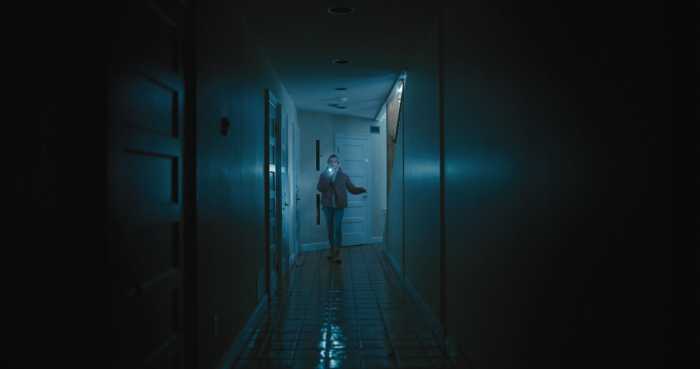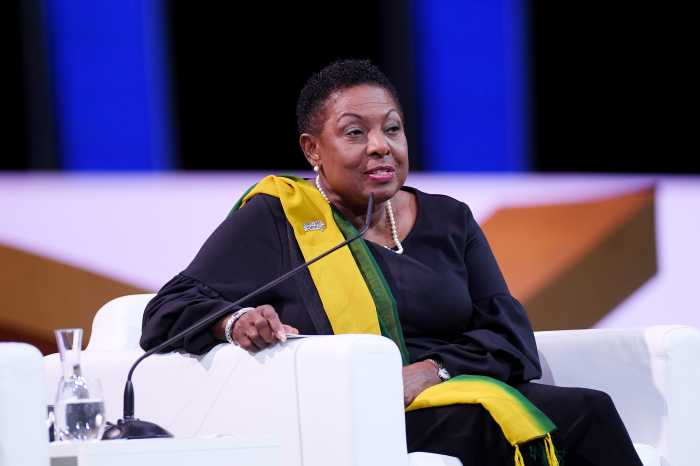In July’s music round-up, we catch up with a breakthrough from hip-hop duo They Hate Change (featuring non-binary MC Vonne), a change of direction from gay singer/songwriter Perfume Genius, and the second album by much-hyped gay, non-binary pop singer King Princess.
They Hate Change | “Finally, New” | Jagjaguwar
Although the Tampa group They Hate Change has been making music for more than a decade, their latest album “Finally, New” has taken them to a new level of media attention. Just as Drake’s “Honestly, Nevermind” and Beyoncé’s single “Break My Soul” look back at house music, They Hate Change draw on a wide variety of more subterranean club styles. The inspirations for “Finally, New” include Miami bass, jook, drum’n’bass and even prog-rock. Their music is much more uptempo than most current hip-hop. The voices of the duo, made up of Vonne and André, are different enough to enhance their chemistry.
“Breathing” switches beats halfway through, but “Reversible Keys” is the album’s most complex song. Not entirely instrumental, its vocals are muffled and barely audible after the first few seconds. It goes through several passages, with a synthesizer melody dominating for a brief period and then getting buried by an increasingly loud and complex arrangement. They pay tribute to the punk band X-Ray Spex twice, first with a passing reference to their late singer Poly Styrene and then an entire song named after the group. Their flows match their beats’ fast pace and stuttering rhythms. Riding the groove of “Who Next?” would be a challenge for any rapper. Percussion competes with their voices.
They Hate Change really break new ground on “Sometimes I Hate My Voice,” where Vonne raps about gender dysphoria and an ever-changing identity, citing precursors and peers like transgender R&B singer Jackie Shane and Laura Les, the transgender singer/producer of hyperpop duo 100 gecs. In interviews, Vonne has brought up their desire to speak about their identity with a positive outlook, telling the Quietus “On ‘X-ray Spex’, I say ‘Fenty all on my face, vintage jeans on my waist’, talking about my makeup brand of choice. It’s not going on this long spiel about gender expression, or femininity, or whatever. I put it in there like a flex, like any other flex.” “Finally, New” dodges hip-hop clichés — “Blatant Localism” boasts about not showing off guns in their videos — without self-righteousness, showing just how much They Hate Change have to flex about.
Perfume Genius | “Ugly Season” | Matador
Over the last few years, Mike Hadreas’ project Perfume Genius has become a fixture in movie soundtracks and trailers. (“Fire Island” was the most recent one.) His latest album, “Ugly Season,” will not be played at high school proms, real or cinematic.
His music — and, even more so, his videos — have always been connected to dance. The unusual nature of his latest album, “Ugly Season,” which draws heavily from classical composition, can be explained by its roots as the soundtrack to Perfume Genius and Kate Wallich’s 2019 dance piece “The Sun Still Burns Here.” He then reworked the music in the studio with his partner and musical collaborator Alan Wyffels and producer Blake Miller. This album was born out of the difficulty performing “The Sun Still Burns Here” post-pandemic.
While “Ugly Season” isn’t entirely instrumental, Perfume Genius weaves his voice together with strings instead of trying to be heard above them. He hits the top of his range, swooning in an androgynous falsetto. The album stays away from obvious markers of “dance music” — in fact, it gets to the fourth song before it uses percussion. With its piano and harp runs, “Scherzo” could be a release on the chamber jazz label ECM. Even the reggae-inspired chords of the title track go off in unexpected directions. The album emphasizes overall texture and structure far more than melody. “Cenote” closes things out on a note of calm, halfway between Keith Jarrett’s piano improvisations and minimalist ambient music. Like recent music from Circuit des Yeux and Lotic which draws on classical music and opera, it delivers on a previously unheard potential, creating a hybrid form.
King Princess | “Hold On Baby” | Zelig/Columbia Records
King Princess made a splash with their guitar-driven 2018 hit “1950,” which likened their unrequited love for a woman to living in the closeted past. It went platinum. But while they received an enormous amount of buzz around that time, with articles declaring them a queer icon and modern-day rock star, their follow-up singles and debut album didn’t click with the public to the same degree. No matter how much hype an artist begins with, they need to sustain interest over several albums to maintain a career rather than getting written off as a one-hit wonder.
King Princess’ greatest strength is their vocals, swinging from breathy to earthy depending on the needs of the moment. (Although they’re from Brooklyn, their voice carries a slight twang.) Their voice is too often backed by a fashionable mono-genre music, a watered-down synthesis of pop, rock, and electronic sounds. The piano and drums are chalky and badly mixed, as if the producers (11 of whom worked on the album, including King Princess) chose the first presets they found. The album utilizes distorted electric guitar, keeping its volume tightly controlled, as if to suggest “this is influenced by rock music, but it isn’t rock.” The moody ups and downs of the opening track, “I Hate Myself, I Want to Party,” which lets loose after a subdued start, benefits from embracing both King Princess’ softer side and “savage rock star persona” (to quote a recent Rolling Stone profile.) Their mellower songs are most successful, capturing the eeriness of Billie Eilish’s ballads. More austere and imaginative arrangements, like the warped keyboards running through “Hold On Baby Interlude,” would have allowed their voice to stand out. Other songs struggle to bring out her mix of melancholy reflection and lusty libido: “Too Bad” is egregiously generic, while “Let Us Die” fails to live up to the desperate ache its lyrics describe. Their backing tracks could’ve been given to Miley Cyrus or Demi Lovato. King Princess still shows great potential, but they have a way to go to fulfill it.





































